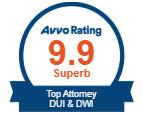 In dealing with criminal defense matters, I often say “Bad things happen even to good people!” The saying is particularly applicable in cases where juveniles (i.e. under the age of 18) are arrested for criminal offenses. The prosecution of these cases occurs in juvenile court, but just like adult offenses, they can have far reaching results. A conviction for a juvenile charge can impact potential employment opportunities and effect college admission eligibility and scholarship possibilities.
In dealing with criminal defense matters, I often say “Bad things happen even to good people!” The saying is particularly applicable in cases where juveniles (i.e. under the age of 18) are arrested for criminal offenses. The prosecution of these cases occurs in juvenile court, but just like adult offenses, they can have far reaching results. A conviction for a juvenile charge can impact potential employment opportunities and effect college admission eligibility and scholarship possibilities.
RELEASE FROM CUSTODY
When a child is arrested, he/she is taken to a “Juvenile Assessment Center” for intake and screening purposes. If the child is not immediately released, he or she will be held at the “Pinellas Juvenile Detention Center” (“JDC”), located at 5255 140th Avenue North, Clearwater, FL. The phone number for the facility is (727) 538-7100.
Unlike adults at the Pinellas County Jail, bond can not be posted for a juvenile’s release from custody. Instead, a “Detention Hearing” is required to take place within twenty four (24) hours of the arrest. At that hearing, the judge will review information about your child’s history, family/home situation, and the specific allegations in the case. The judge is permitted to release the child to a parent or guardian or continue the current detention status. Your child’s attorney can put forth information to the judge to show that the child is not a risk/danger to society and explain why a release from custody is appropriate.
CASE RESOLUTION
The State Attorney’s Office will review the allegations against your child within a week of the arrest. Thereafter, the prosecutor will decide (a) if your child should be charged with a crime and, (b) what charges will be filed. The prosecutor has discretion to decide if and when charges are appropriate. Your attorney should be in constant contact with the State Attorney’s Office. The attorney can provide additional information to the prosecutor about your child and specific information about the case. Often times, if a client does not have an attorney providing the “rest of the story” to the State Attorney’s Office, the prosecutor will be forced to rely on the facts and circumstances as presented by law enforcement. Early intervention by counsel can influence whether charges are ever filed against your child.
If the State attorney’s Office has decided to file charges, there are things that can be done to improve the child’s situation. In some circumstances, we are able to present additional information that can convince the prosecutor to “drop” the charge. In other scenarios, we can take steps to have your child’s case placed into a “diversion program.” Diversion programs are based on written contracts between the child and the State Attorney’s Office. The “contract” outlines several conditions that the juvenile must follow (no new offenses, counseling/treatment, and payment of fines and/or restitution). If the conditions are successfully met within a certain time period, the State Attorney’s Office will agree to dismiss the charge(s).
If your child is not a candidate for a diversion program, he or she may be eligible to serve a probationary sentence and avoid a finding of “delinquency.” This is called a “withholding of delinquency.”
In any event, the retention of an attorney experienced in handling juvenile cases is critical to giving your child the best chance for a successful outcome to his or her case. When making decisions about counsel, ask questions. Make sure the attorney you chose has extensive experience in handling juvenile cases and has a strong professional relationship with the presiding judge and the State Attorney’s Office.





